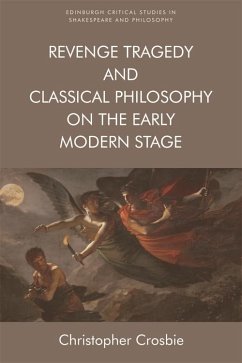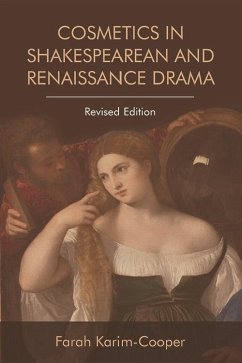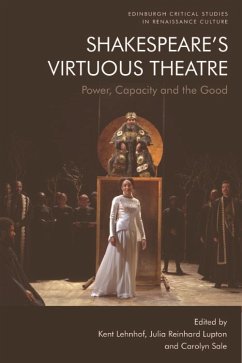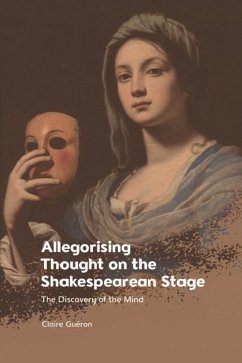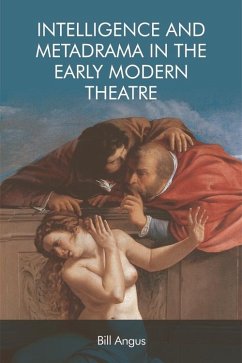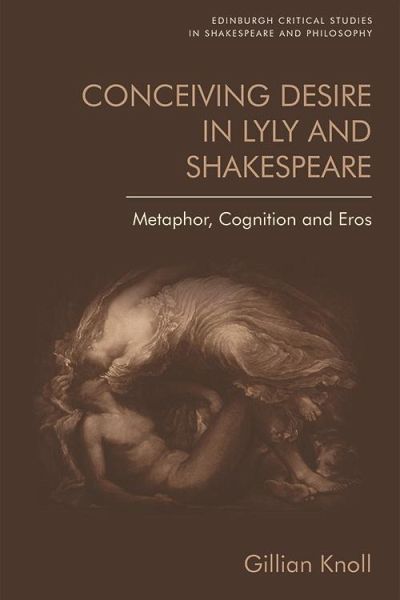
Conceiving Desire in Lyly and Shakespeare (eBook, PDF)
Metaphor, Cognition and Eros

PAYBACK Punkte
0 °P sammeln!
Explores the role of the mind in creating erotic experience on the early modern stageAdvances a new critical methodology that credits the role of cognition in the experience of erotic desire, and pleasure itselfExplores the philosophical underpinnings of erotic metaphors, drawing from ancient, early modern, and contemporary thinkers such as Aristotle, Giordano Bruno, Gaston Bachelard, Emmanuel Levinas, Kenneth Burke, George Lakoff, and Mark TurnerIlluminates the dramatic vitality of philosophical and contemplative erotic speechProvides the first full-length study that pairs John Lyly's and Wil...
Explores the role of the mind in creating erotic experience on the early modern stageAdvances a new critical methodology that credits the role of cognition in the experience of erotic desire, and pleasure itselfExplores the philosophical underpinnings of erotic metaphors, drawing from ancient, early modern, and contemporary thinkers such as Aristotle, Giordano Bruno, Gaston Bachelard, Emmanuel Levinas, Kenneth Burke, George Lakoff, and Mark TurnerIlluminates the dramatic vitality of philosophical and contemplative erotic speechProvides the first full-length study that pairs John Lyly's and William Shakespeare's drama, uncovering new forms of intimacy in their playsTo 'conceive' desire is to acknowledge the generative potential of the erotic imagination, its capacity to impart form and make meaning out of the most elusive experiences. Drawing from cognitive theories about the metaphorical nature of thought, Gillian Knoll traces the contours of three conceptual metaphors - motion, space and creativity - that shape desire in plays by John Lyly and William Shakespeare. Metaphors, she argues, do more than narrate or express eros; they constitute erotic experience for Lyly's and Shakespeare's characters.
Dieser Download kann aus rechtlichen Gründen nur mit Rechnungsadresse in A, B, BG, CY, CZ, D, DK, EW, E, FIN, F, GR, HR, H, IRL, I, LT, L, LR, M, NL, PL, P, R, S, SLO, SK ausgeliefert werden.








